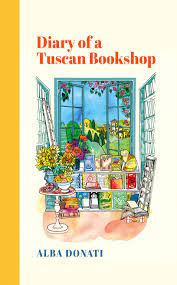Dear all of our wonderful followers and dedicated readers,
This is an incredibly difficult post to write, but it is sadly necessary to do so. The Literary Sisters has been in existence, run by the wonderful Akylina and myself, for over a decade now. However, our lives have changed immeasurably since we decided to work on a bookish blog together, a project which has been rewarding, and so worthwhile. We were students 10 years ago, with a bit of spare time to dedicate to our passion of reading, and to let others know about the books we were letting into our lives. We are now both in full-time jobs, both of which now require a commute. Our spare time has diminished, and any free moments we get are a gift.
Speaking for myself, I do not have much time to read any more, particularly in comparison to how I used to devour books when I was studying. During commuting weekdays, my tired self tries to spend my entire train journey reading, but I am consistently too tired to take extensive (or usually any) notes on these books, which I can then turn into reviews. There is also the time it takes to write a single review, which averages around 1 hour, and can run to far more. With a demanding, screen-focused day job, I am finding it very difficult to devote more of my spare time to staring at yet another screen.
My passion for reading has also changed over the last decade. It felt almost like the be-all and end-all of my life when we started this blog, but now, reading is just a hobby for me, rather than my lifeblood. I don’t have the same desire to write about everything I’m reading, or even really to recommend titles. I have stopped visiting Goodreads more than once or twice per month, and focus most of my reading energy on the Storygraph app nowadays. I want to see reading as a hobby I very much enjoy, rather than an obligation to create content.
It is therefore with a heavy heart that I bid you a farewell for now. I’m hoping that this is just a hiatus, and that I may be back to blog before the year is out, but for now, I am taking a break. I want to thank you for all of your much appreciated support over the last decade, from every like and follow to every comment left. The Literary Sisters has been such a worthwhile project for me, and I am so glad that I have been able to dedicate so much of my time to it in the past. It has meant a lot to me to be able to connect with so many readers all across the world.
All posts will stay up, so feel free to search through the archive if you feel so inclined. If you would like to add me on Goodreads, you can do so here: https://www.goodreads.com/user/show/56491386-kirsty.
Take care, happy reading, and all the best for a peaceful and fulfilling 2024.
Love, Kirsty xx





